Reisha Perlmutter’s mesmerizing paintings of nude women underwater
The 27-year-old artist explores the biological connection between the body and water.
By Hannah OngleyJul 28 2017, 4:48pm
Reisha Perlmutter has approximately 158K Instagram followers. And it's obvious why one of her mind-bending oil paintings of nude women submerged in sun-dappled, emerald water can easily hit six thousand likes. Reisha has only been painting her water series for two years. The starting point of her New York Academy of Art thesis was abstract cow hearts and the capillaries on translucent, aging skin. But the newer paintings, while captivatingly beautiful, are also a biological study, exploring the connection between flesh and water. Reisha has traveled from Montauk to Greece painting women of all shapes, sizes, and skin colors.
"I think it does surprise people that I don't consider myself a photorealistic painter," Reisha says when I mention how different the paintings appear up-close. "I think the initial shock arises from the fact that my work is primarily shared on social media platforms, where the image is shrunken down tremendously and certain details are lost. As the image gets smaller, the gestural quality, and physical quality of the paint is often lost in translation."
In real life, you can see the brush strokes, further blurring light, color, woman, and water. Water abstracts specific body parts — outstretched limbs, uninhibited stomachs, and tattoo-covered mastectomy scars — and the body as a whole, separating subjects from their worldly insecurities. "The idea of wholesomeness, and accepting all aspects of the body as they relate to our biology, our identity, and more importantly life as a force," says Reisha, "is something that I am fascinated by."
As she prepares to open a solo show in East Hampton this weekend, Reisha talks to i-D about the empowering nature of water, being censored by Instagram, and remembering that we're all just tissue and bones.
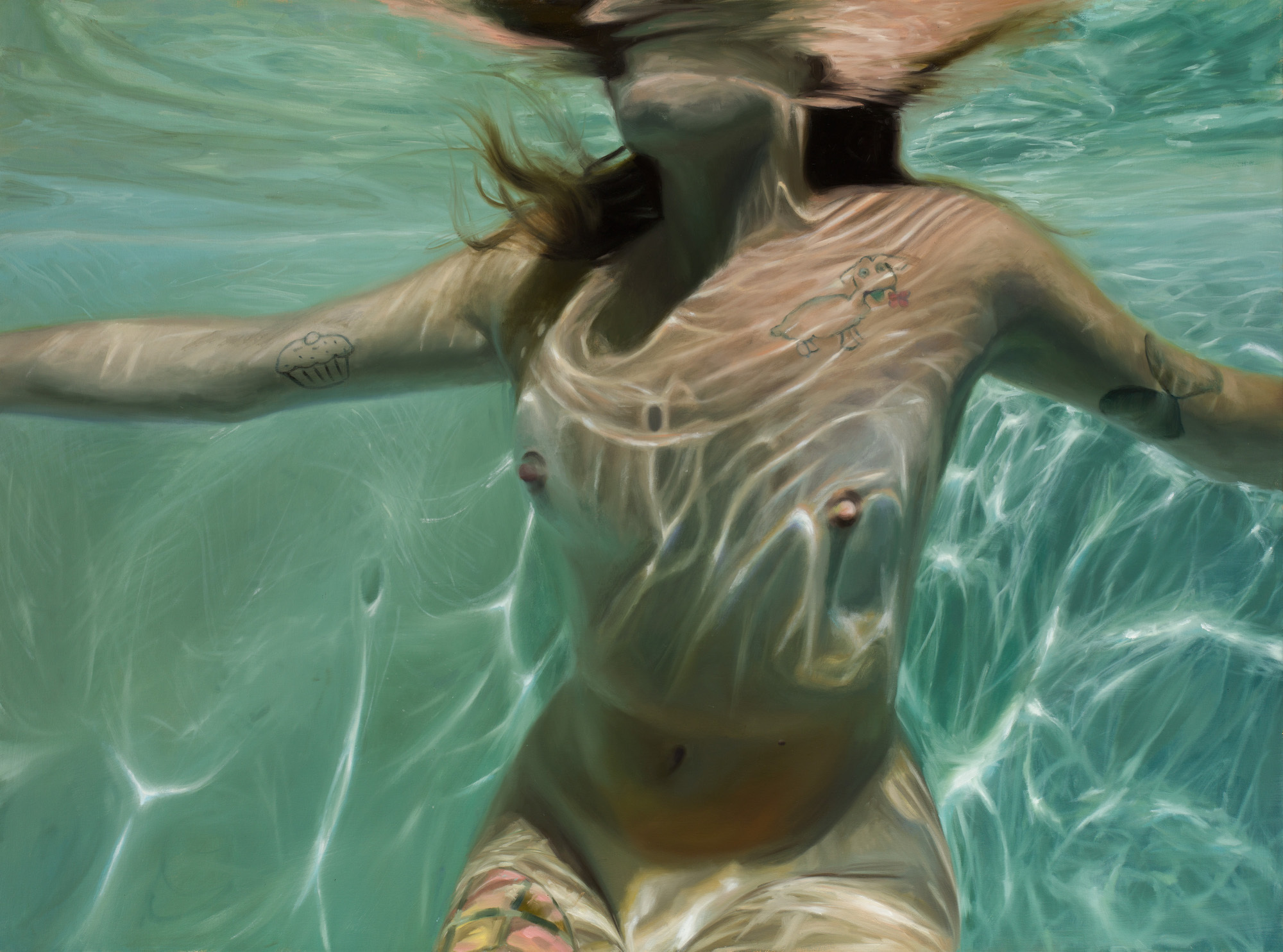
How do you persuade women with everyday body hang-ups to bare all and enjoy being one of your subjects?Women coming to model for me are introduced to my work in a variety of ways, usually friends of friends, people I meet in my travels and everyday life, and are more than happy to be involved. During the shoot, it really happens in a very natural and organic way. I find that by talking to these women about my work and explaining my process, I am able to differentiate myself from a photographer with a critical eye, direction, and certain expectations. Instead, I aim to be non-threatening, and non-judgmental, inviting women to completely relinquish themselves from the weight and expectation placed upon them.
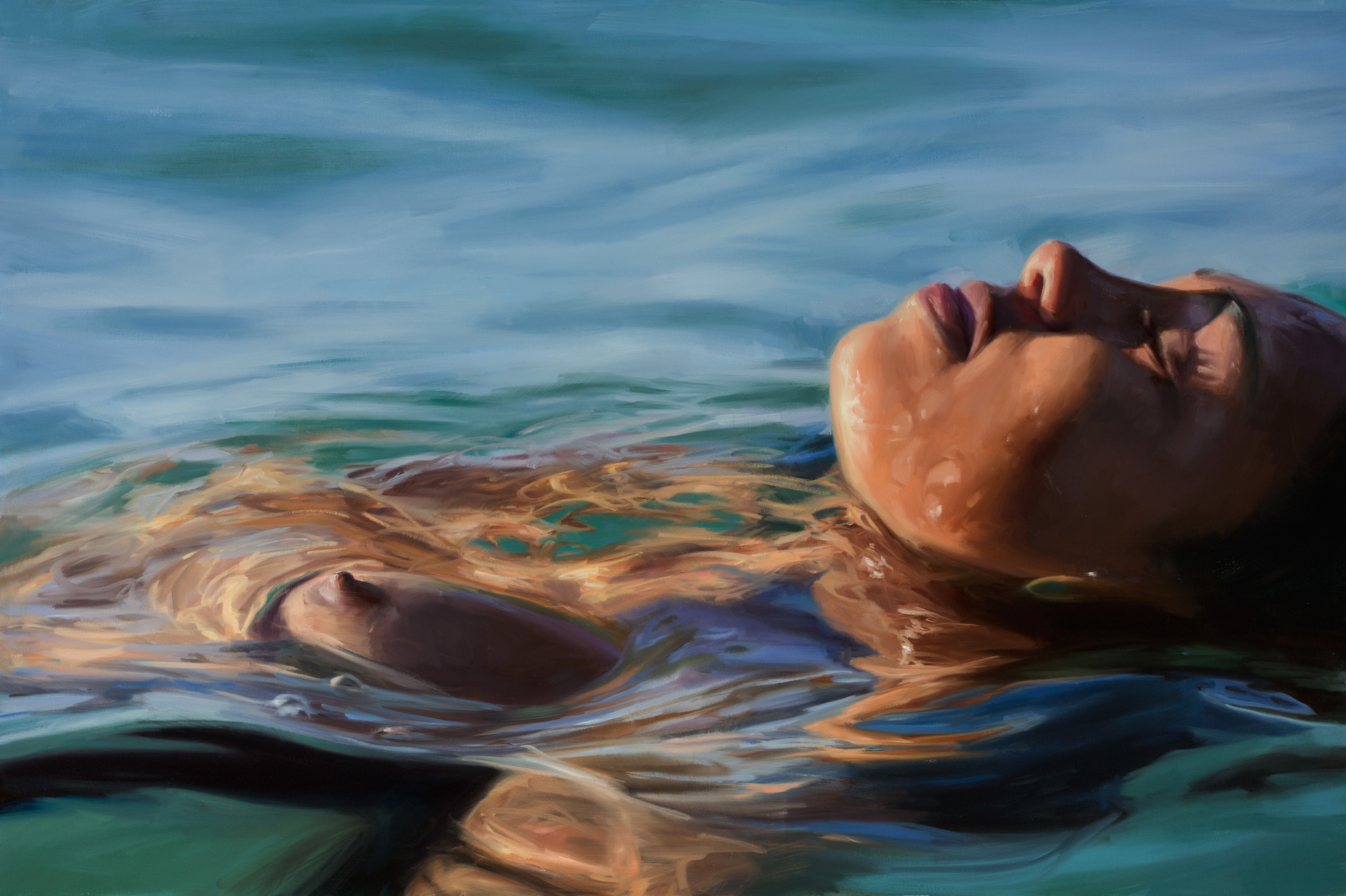
Why is being submerged in water so empowering?Water really removes the idea of the critical eye. It allows us to feel suspended, and held. Water breaks us away from a fixation on certain parts of our bodies that we may feel self-conscious about, and instead, we are able to return to a feeling of wholeness, of connection, and awareness of our bodies without mental hangups. There is also something incredibly carnal about our relationship to water. As biological beings, we respond to water in a fundamental way. We are primarily made up of it, we come from it, and we use it to cleanse ourselves with. Connecting to water, feeling it, and having it hold us, allows us to release ourselves from our mental hang-ups of what we should or shouldn't be. Instead, it holds us in a moment of simply "being," and reconnects us to the simplicity of feeling.
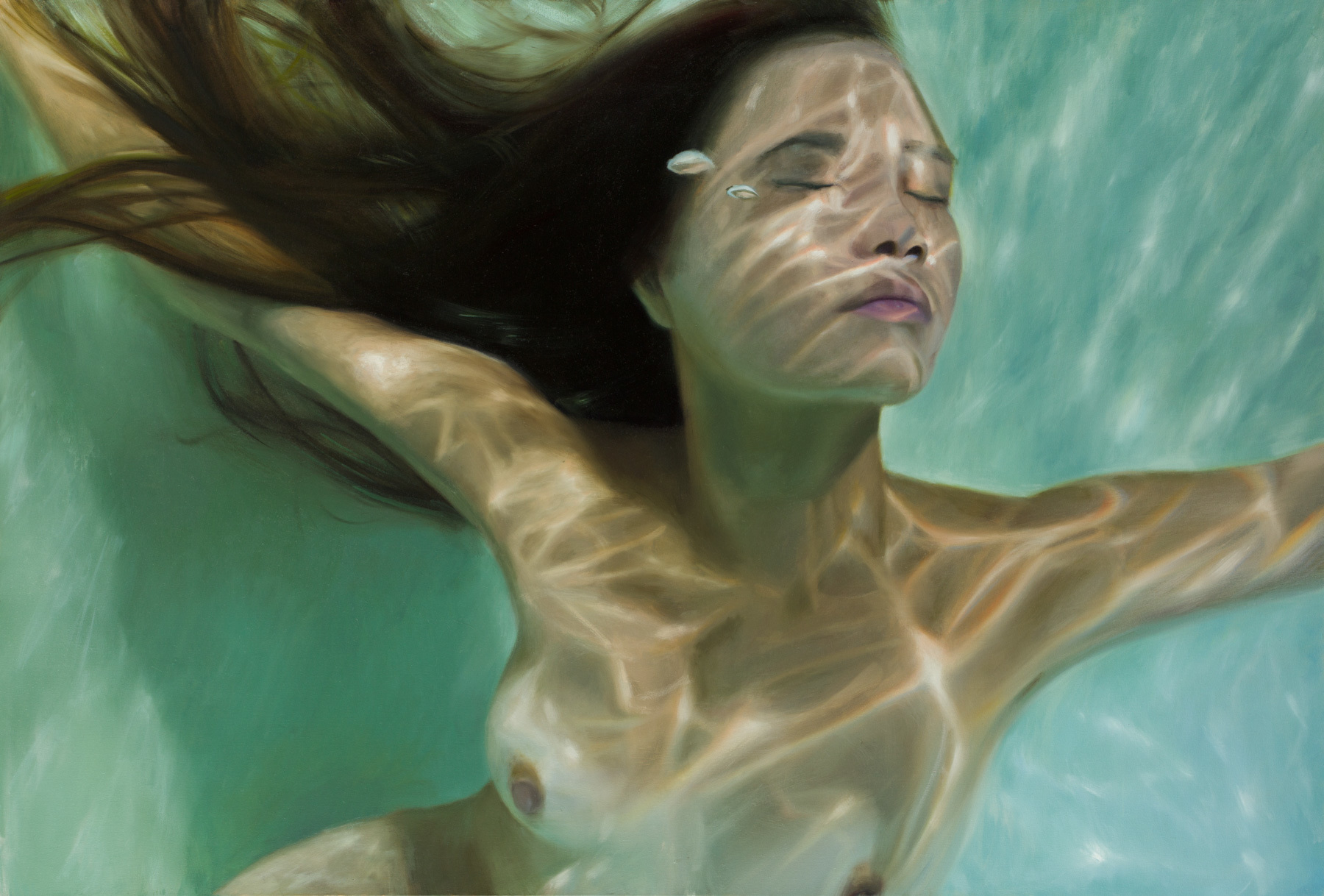
Does Instagram often make you censor your art for showing nipples?Unfortunately yes, Instagram censors a lot of my images. This is something that was initially extremely frustrating to me. However, this censorship forced me to evaluate and begin to explore our fixation with our bodies as individual parts, and an underlying societal fear of seeing all aspects of bodies as empowering, strong, flawed, and simultaneously perfect.
I do think that there is a simultaneous fear and strain on sexuality in our culture, both of which do not exist in balance. I consider sexuality as an aspect of biology, but not the ultimate governing force. In my opinion, sexuality in relation to biology shouldn't be judged so harshly, it should be considered as one of the many aspects of our humanity.
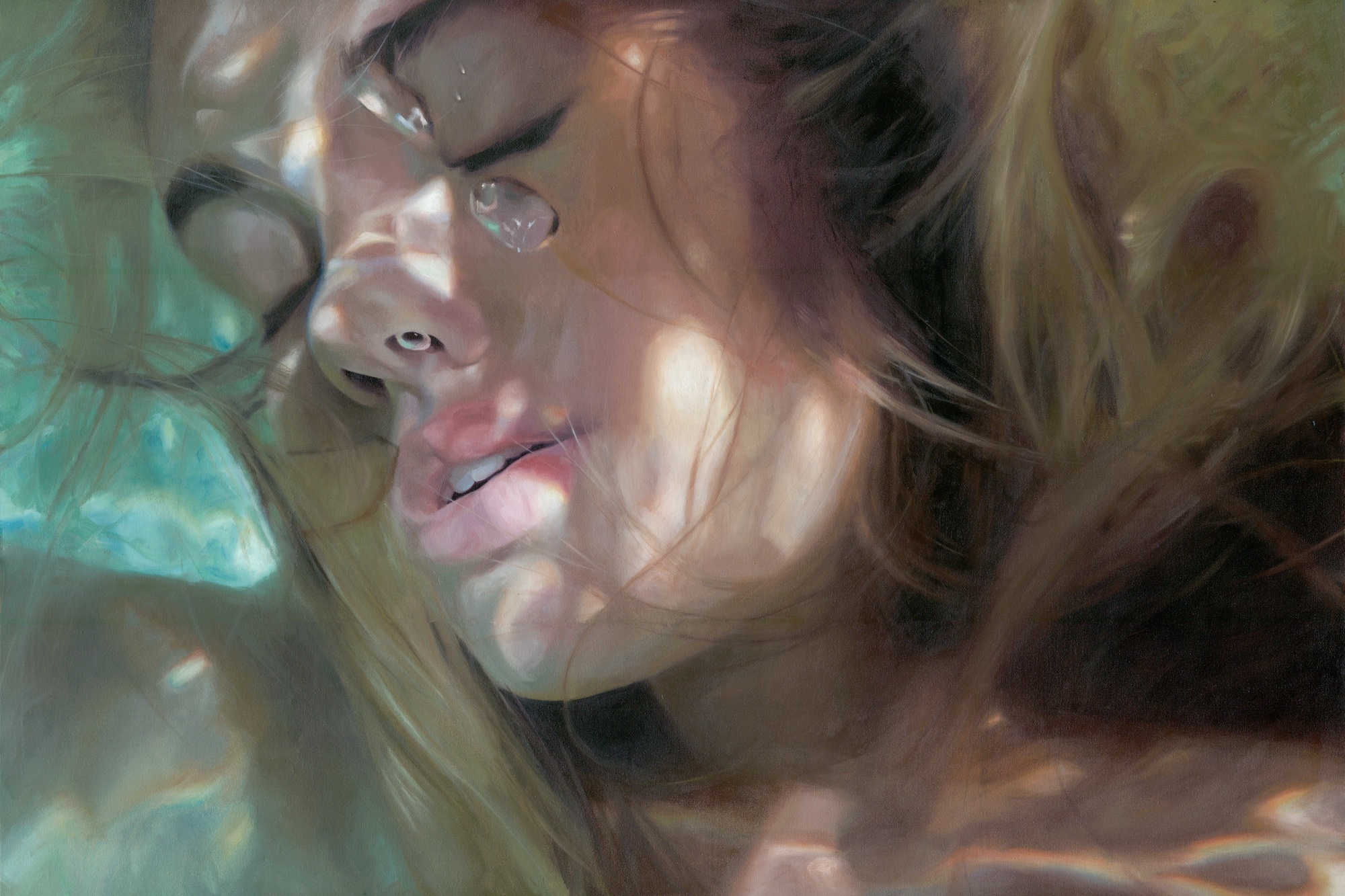
Do you think art can help society to learn that women's bodies are not inherently sexual?This is actually quite a complicated question in terms of how we fundamentally relate our biology as humans to sexuality, and how society interprets that. On an extremely basic level, I do actually believe that humans are ultimately sexual; women as much as men. However, I think that there has to be a fundamental power shift in how the media perceives the power associated with sexuality. I don't think women need to hide from their sexuality in an effort to not be considered inherently sexual. I do think that empowerment can come with accepting and owning one's own sexuality, as one of the many aspects of who we are. By recognizing it without shame, I think it allows for the ability to accepting other forms of empowerment and strength and society that are often dictated by male perception or idealism.
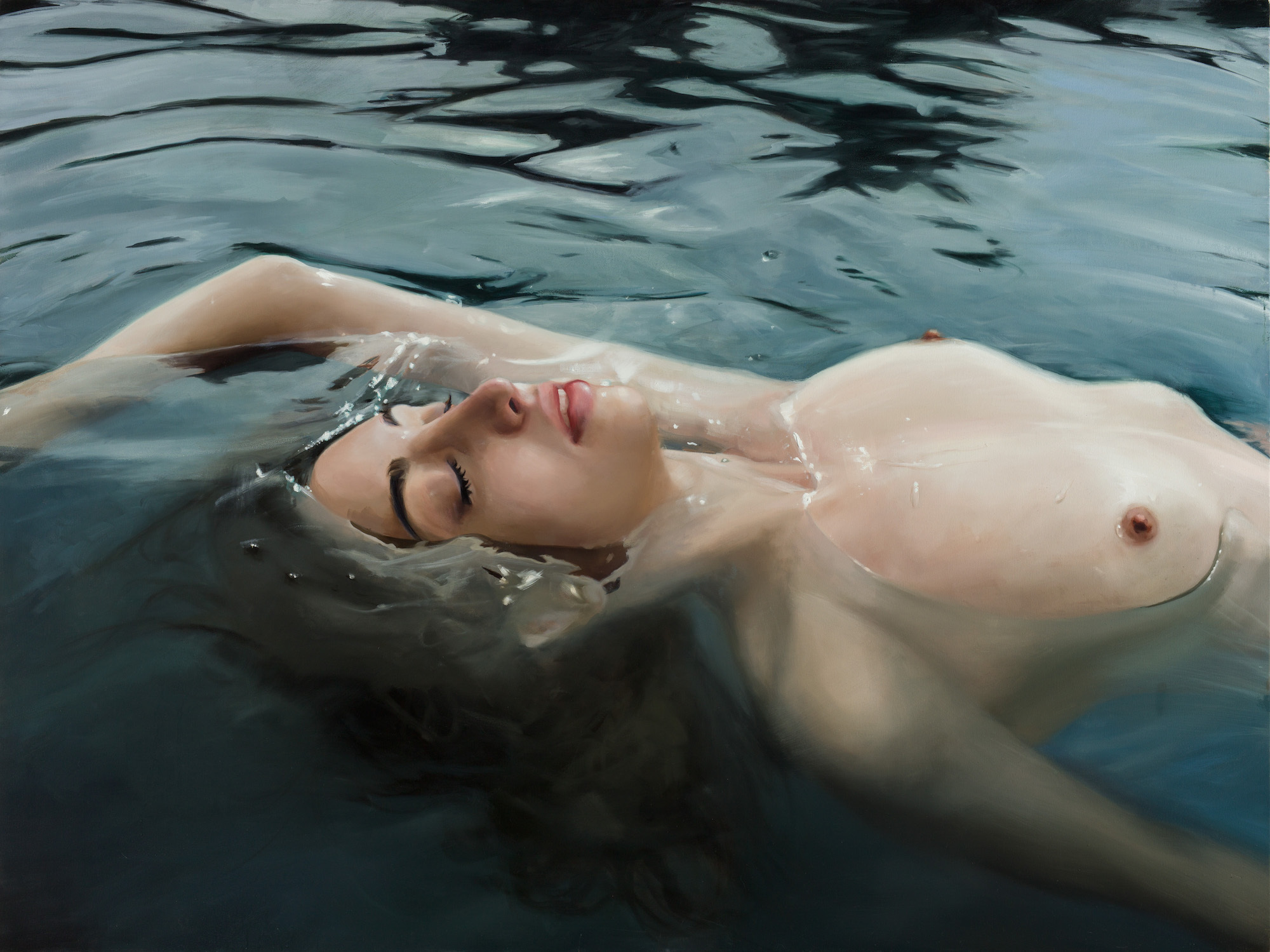
You paint from photos, but resist the term photorealistic. How do you approach the canvas instead?I always begin my paintings very loosely, and open. It is this process of beginning with chaos and eventually coming to a sense of organization that I love so much about painting. I see it as a metaphor for life, and the fixation on trying to control every aspect of life as in a painting is impossible. Instead, we can only try to manipulate the medium to the best our ability, while being open to allowing it to move as it is conducted by physics and chemistry. I think the relinquishing of power in painting keeps each piece alive for me.
You yourself feature heavily in the water series. What is it like painting such intimate self-portraits?Painting self-portraits allows me to dissociate myself from what I look like superficially, and instead, be able to perceive myself as a combination of cells, bones, and tissues that connect in a specific way that make me look like "me." I have been painting myself for quite a long time, and it has been fascinating over years to non-judgmentally perceive changes in my facial structure. There is a cellular intelligence dictated by DNA that supersedes superficiality associated with image. Every time I paint myself, especially from life, I look at myself as a biological phenomenon as opposed to a 27-year-old female with imperfections. This is something that has proven to be critical for me as a form of self therapy.




No comments:
Post a Comment